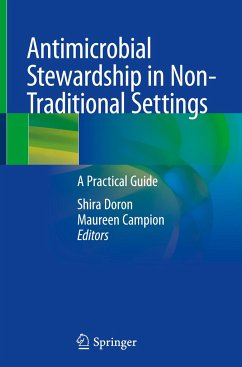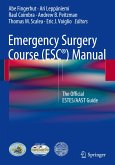The evolution of Antimicrobial Resistance is outpacing the ability to create novel antibiotics, which is proving to be a global problem in the fact of climate change, population growth, demographic shifts toward aging populations, emerging infections, and other crises. Therefore, clinicians are forced to use the existing antimicrobials more responsibly to preserve their longevity for generations to come. In a parallel vein, there has been a recent regulatory acknowledgement of the importance of prudent antimicrobial prescribing, mandating the implementation of Antimicrobial Stewardship across all healthcare settings. This is harder to manage in a non-traditional setting, which include long-term care facilities, outpatient care clinics, urgent care centers, and others. Given the trends in patient care in these settings-particularly where the aging community is concerned-this is proving to be a growing problem. This is troublesome even for spaces that have university and large hospital affiliations.
There is a plethora of data describing the implementation and outcomes of Antimicrobial Stewardship Programs in acute-care hospitals with open-access, evidence-based guidelines endorsed by the Infectious Diseases Society of America. However, non-traditional settings often find themselves struggling to implement the same practices and procedures due to their unique needs and limited resources. There may be variability in access to resources, applicability, and patient-type. This book seeks to inform those in non-traditional healthcare settings on the principles, practice, and outcomes of Antimicrobial Stewardship Programs to improve patient care across all settings.
The text begins by unpacking Antimicrobial Stewardship in nontraditional settings then covers specific environments, including long-term care facilities, outpatient clinics, and emergency departments. The text also covers special topics, including veterinary medicine, HIV, oncology, and immunocompromised patients, pediatrics, neonates, transplant, and critical care patients.
Hinweis: Dieser Artikel kann nur an eine deutsche Lieferadresse ausgeliefert werden.
There is a plethora of data describing the implementation and outcomes of Antimicrobial Stewardship Programs in acute-care hospitals with open-access, evidence-based guidelines endorsed by the Infectious Diseases Society of America. However, non-traditional settings often find themselves struggling to implement the same practices and procedures due to their unique needs and limited resources. There may be variability in access to resources, applicability, and patient-type. This book seeks to inform those in non-traditional healthcare settings on the principles, practice, and outcomes of Antimicrobial Stewardship Programs to improve patient care across all settings.
The text begins by unpacking Antimicrobial Stewardship in nontraditional settings then covers specific environments, including long-term care facilities, outpatient clinics, and emergency departments. The text also covers special topics, including veterinary medicine, HIV, oncology, and immunocompromised patients, pediatrics, neonates, transplant, and critical care patients.
Hinweis: Dieser Artikel kann nur an eine deutsche Lieferadresse ausgeliefert werden.








